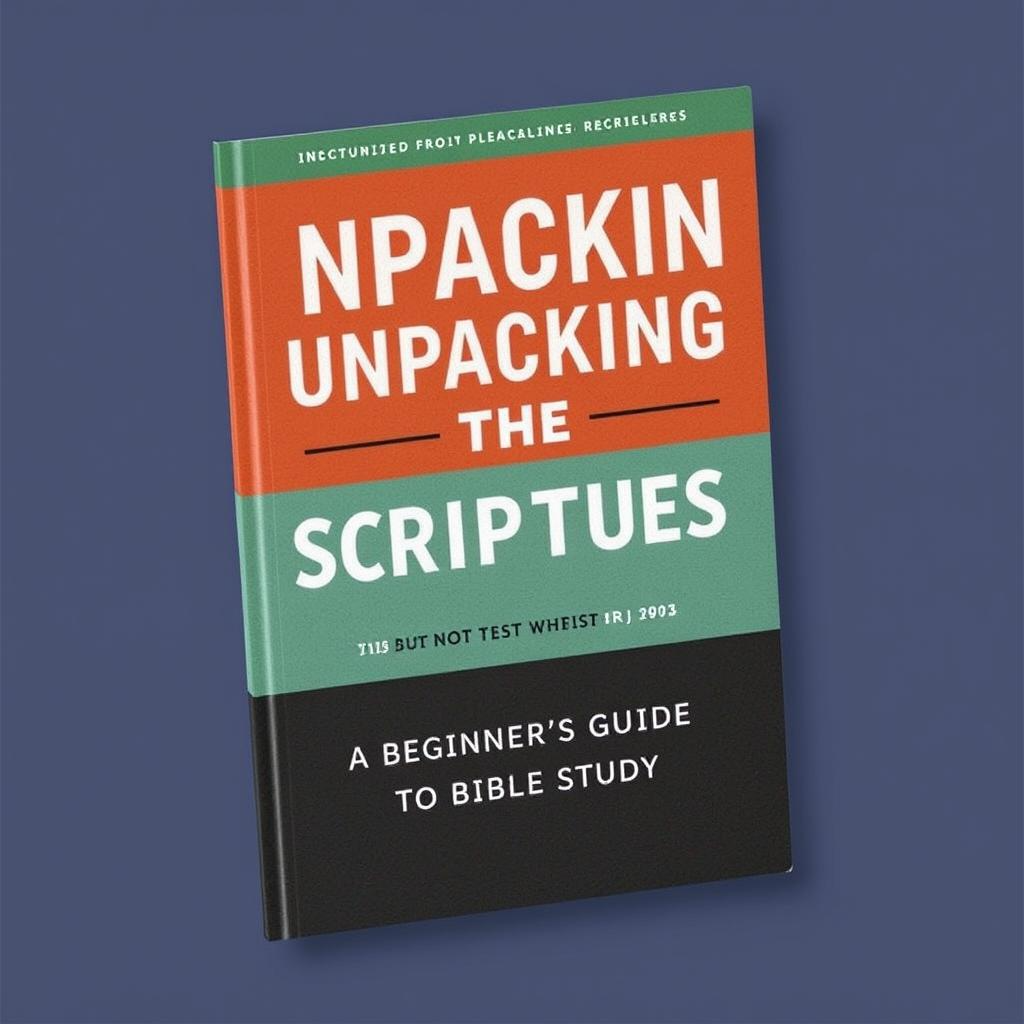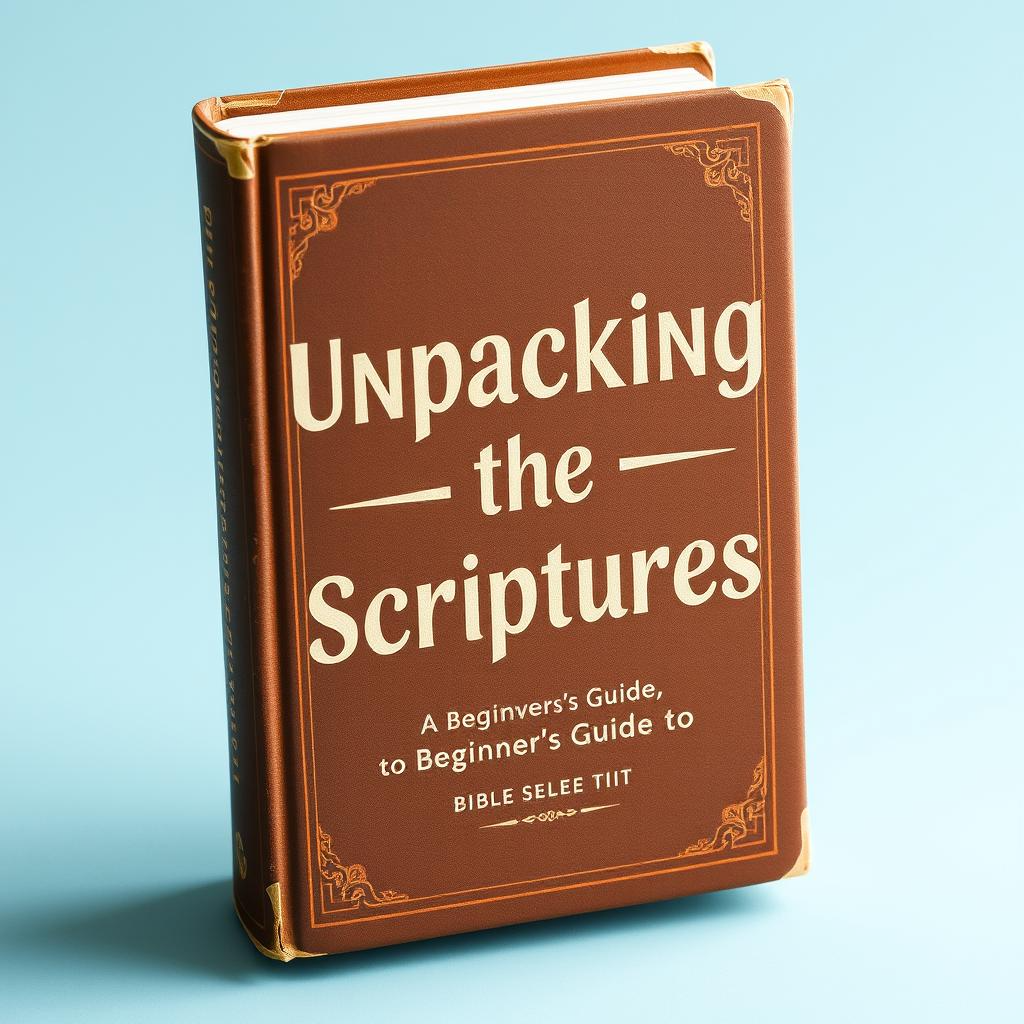Introduction to Bible Study
Embarking on a journey to study the Bible can be a daunting yet incredibly rewarding experience. For many, the scriptures hold deep personal, spiritual, and historical significance, offering insights into faith, ethics, and the human condition. Whether you’re seeking to deepen your faith, understand religious texts, or simply explore one of the most influential books in human history, approaching the Bible with an open mind and heart can lead to profound discoveries. This guide is designed to help beginners navigate the complex and rich tapestry of the scriptures, providing a foundational understanding and practical tips for effective Bible study.
Understanding the Structure of the Bible
Before diving into the study of the Bible, it’s essential to have a basic understanding of its structure. The Bible is divided into two main sections: the Old Testament and the New Testament. The Old Testament tells the story of creation, the history of the Israelites, and the prophetic writings that foresaw the coming of Jesus Christ. It includes books of law, history, poetry, wisdom, and prophecy. The New Testament, on the other hand, focuses on the life, teachings, death, and resurrection of Jesus Christ, along with the formation and growth of the early Christian church. It comprises the Gospels, Acts, Epistles (letters), and the Book of Revelation.
The Old Testament
The Old Testament is further divided into several sections:
- The Law (Torah): Genesis, Exodus, Leviticus, Numbers, and Deuteronomy, which provide the foundational laws and narratives of the Israelites.
- Historical Books: Joshua through Esther, detailing the history of the Israelites from the conquest of Canaan to the period of exile and return.
- Poetic and Wisdom Literature: Job through Song of Solomon, which explore themes of suffering, wisdom, and love.
- Major and Minor Prophets: Isaiah through Malachi, containing prophecies and calls to repentance.
The New Testament

The New Testament is structured as follows:
- The Gospels: Matthew, Mark, Luke, and John, each providing a unique perspective on the life and teachings of Jesus.
- Acts of the Apostles: A historical account of the early Christian church and the spread of Christianity.
- Epistles: Letters written by early Christian leaders, such as Paul, Peter, and John, to various churches and individuals, addressing theological questions and ethical issues.
- The Book of Revelation: A prophetic and apocalyptic text that concludes the Bible, offering visions of the end times and the ultimate triumph of God.
Approaching Bible Study
Setting Up Your Study Space
To begin your Bible study journey, it’s helpful to set up a conducive study space. This could be a quiet corner in your home, a local library, or even outdoors. Ensure that your study space is free from distractions and has the necessary tools, such as a Bible, notebooks, pens, and access to study resources or the internet.
Choosing a Study Method
There are several methods to approach Bible study, and what works best for you may depend on your learning style and goals. Some popular methods include:
- Verse by Verse: Analyzing the Bible one verse at a time, often used for in-depth understanding of specific passages.
- Chapter by Chapter: Studying a chapter at a time, which can provide a broader context of the narrative or argument.
- Book by Book: Examining an entire book of the Bible, useful for understanding the overall message and themes.
- Thematic Study: Exploring specific themes or topics across different parts of the Bible, such as love, forgiveness, or leadership.
Using Study Tools and Resources
In addition to the Bible itself, there are numerous tools and resources available to enhance your study experience:
- Study Bibles: Bibles with commentary notes, maps, and other supplementary materials that can aid in understanding the historical and cultural context.
- Commentaries: Books written by scholars that provide detailed explanations and interpretations of biblical texts.
- Online Resources: Websites, apps, and digital libraries offering a wide range of study materials, including devotionals, study guides, and audio/video teachings.
Deepening Your Understanding
Reading with Purpose
As you engage with the scriptures, it’s beneficial to read with a purpose. Ask yourself questions like:
- What is the main theme or message of this passage?
- How does this relate to my life or current events?
- What does this reveal about God’s character or will?
Applying Biblical Principles
One of the most significant aspects of Bible study is applying its principles to your life. This involves reflecting on how the teachings and stories can guide your decisions, relationships, and personal growth. Consider how you can live out the values and commands found in the scriptures in your daily interactions and challenges.
Joining a Study Group
Engaging with others in Bible study can be incredibly enriching. Joining a study group, whether in-person or online, provides an opportunity to discuss your findings, hear different perspectives, and learn from others. This communal approach to study can deepen your understanding and foster a sense of community and support.
Overcoming Challenges in Bible Study

Dealing with Difficult Passages
You will inevitably encounter passages that are difficult to understand or seem contradictory. Don’t be discouraged; instead, approach these challenges as opportunities for growth. Consider seeking help from commentaries, talking to a pastor or religious leader, or discussing with your study group.
Maintaining Consistency
Consistency is key in developing a meaningful Bible study habit. Set aside a specific time each day or week that works for you, and try to stick to it. Even small amounts of study each day can be more beneficial than attempting to cram all your study into one or two long sessions a week.
Keeping a Journal
Keeping a study journal can be a powerful tool in your Bible study journey. Writing down your thoughts, questions, and insights can help you reflect on your progress, identify patterns or themes in your study, and track how your understanding and application of the scriptures evolve over time.
Conclusion
Embarking on a journey to unpack the scriptures is a significant undertaking, filled with potential for personal growth, spiritual enrichment, and deeper understanding of the world’s most influential book. By setting up a conducive study environment, choosing a study method that suits you, and utilizing the wealth of study tools and resources available, you can navigate the complexities of the Bible with confidence. Remember, the goal of Bible study is not merely to accumulate knowledge, but to apply its teachings in a way that transforms your life and the lives of those around you. With persistence, an open heart, and a willingness to learn, you can unlock the profound treasures contained within the scriptures, leading to a more fulfilling and meaningful life.

